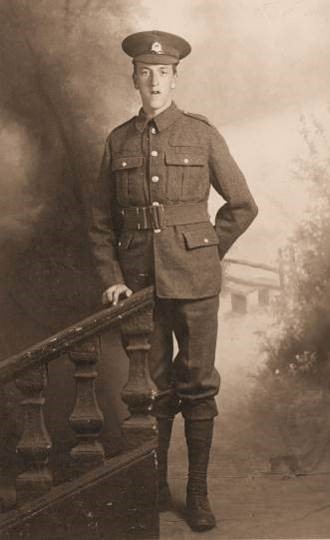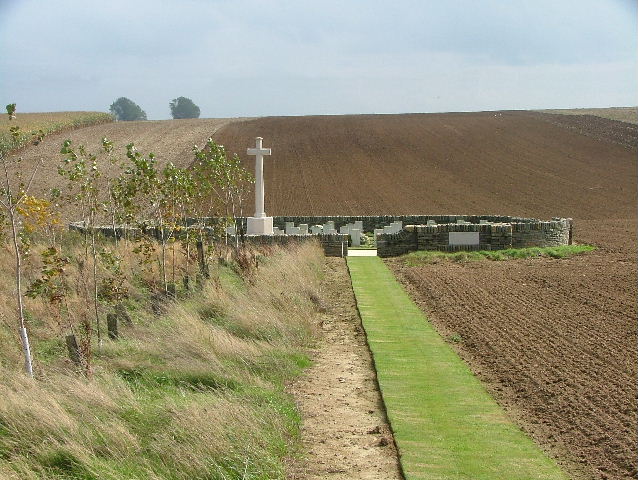Name
Edward Charles Burton
Conflict
First World War
Date of Death / Age
21/12/1916
19
Rank, Service Number & Service Details
Private
28050
Bedfordshire Regiment
2nd Bn.
Awards: Service Medals/Honour Awards
British War and Victory medals
Cemetery/Memorial: Name/Reference/Country
BERLES POSITION MILITARY CEMETERY
B. 1
France
Headstone Inscription
Not Researched
UK & Other Memorials
Pirton Village War Memorial,
St Mary’s Shrine, Pirton,
Methodist Chapel Plaque, Pirton,
Pirton School Memorial*1
Biography
He was baptised Edward Charles, but appears as E Charles on the Village Memorial. As that is how they wished him to be remembered, that is how he appears here.
Goliath and Mary Ann Burton had nine children, the fifth being Ellen. Edward Charles Burton was her son, born on Christmas Day 1896, when she was about twenty-one and unmarried. She later married George Pearce, some time around 1898 or 1899. While it is possible that Edward was also George’s son the gap of two or three years between his birth and their marriage suggests that this is unlikely.
In most records Charles retained the surname of Burton, while children born after the marriage had the surname of Pearce. Establishing his siblings(*1) or half-sibling(*2) is important because one of them also served, but it is not straight-forward. The 1911 census records that they had five children and all were living, but confusingly the investigation of parish, baptism and census records seem to suggest seven. The 1901 census reveals Edward (‘Charles’ Burton), John and George. Then in the 1911 census, John (‘Francis John’), Frederick, Lilian, Stanley and Laurence. Their son George is not listed in the latter. Only John, who is given as Francis John, is confirmed by the available baptism records. This number was added to when Phyllis was born in 1913 – Phyllis still lives not far from Pirton. Francis John was the brother or half-brother of Charles and also served and died.
Charles went to the Pirton School from the early 1900s and then seemed to disappear from the records until it became apparent that his grandfather, Goliath, married more than once, the last time to Charlotte Weeden in 1905. He died in 1909 leaving her recorded as a widow in the 1911 census. This reveals that Edward Charles Burton was then known as ‘Charles’ and was living with Charlotte. He was only fourteen and has no employment given, but as Charlotte was a widow and listed as a cow-keeper it seems likely that he was helping her, but when war came he was working for his uncle Mr H Burton who was another local farmer.
He enlisted on April 1st 1916 and according to the Hertfordshire Express went to France some time around June, but that is unlikely as fresh recruits were supposed to receive six months’ training, according to the infantry training manual and reservists four, which presumably would also apply to Territorials.
The 2nd Battalion were regulars and were already in France, having gone there in September 1914 as soon as they could be recalled from South Africa where they had been stationed. It is likely that Charles joined them some time around September 1916. In fact, a draft of 160 other ranks joined the Battalion on September 21st so it seems likely that is when Charles arrived. At that time they were billeted on the Somme in France until October 10th, either in Vignacourt or Dernancourt, and so it would have been a gentle start for Charles.
He probably watched the football matches in late September when the 2nd Bedfords beat the 20th King’s Own Liverpool Regiment four goals to one, and the 19th King’s Own Liverpool Regiment one - nil, but all that would have been a distant memory by October 11th when they went into the front line completing the relief of the 20th Cheshires at 2:30am. The war diary records that they were heavily shelled twice on the way. At 4:00am they were ordered to take over the adjacent trenches between 6:30am and 3:30pm. On the 11th their casualties were 5 men killed and 7 wounded. They were also told that they would be attacking the enemy’s trenches the next day.
That day before they were due to attack, the diary records a strange incident when some fifty Germans seemed to want to surrender and appeared without arms. Bravely one of the British officers, 2nd Lieut. H.G. Fyson, went out to speak to one of the German officers among them. After the discussion the German officer returned to his trench, but a shot was fired from the British lines and so nothing came of this episode.
The attack went ahead in the early afternoon. The German trenches were about two hundred and fifty yards away and the Bedfords, with others, went over in four waves. There were mixed results; the first wave came under terrible machine gun and rifle fire. Despite this they got within about fifty yards, but the casualties were so great that they had to lie out until nightfall before they could make their way back. In another section about two hundred yards of trench were captured and held. The war diary notes ‘The Battalion did magnificently and were the only Battalion to gain any ground on the whole of the Corps Front, all the others having to withdraw to their front trenches.’ They were relieved on the 14th and went to the reserve trenches. The casualties for the period were recorded later; 5 officers were killed, 1 died of wounds and 4 others were wounded. In the other ranks the casualty total was 242, 49 men killed, 49 wounded, 2 listed as wounded and missing, another 137 wounded and 5 were recorded as shell shocked.
In the following period they occasionally occupied the trenches, but more frequently worked improving the reserve trenches and moved to the area around Mametz Wood before continuing to move, by train, to Doullens via Mericourt and then back into the front line trenches at Berles-au-Bois at the end of October. November was spent in and out of the trenches in that area of France.
Charles died on December 21st 1916, just a few days before the birthday that would have been his 20th, so the month of December is an important part of his story and the Battalion’s war diary provides relevant information. On December 1st the 2nd Battalion was billeted in Humbercamps where they had been since November 28th. The weather was freezing cold. They stayed there until the 4th when they moved to relieve the Kings Liverpool Regiment in the first line trenches at Berles-au-Bois Billets, near Humbercamps. This was complete by 3:30pm and it was followed by a quiet night with no casualties.
On the 5th snow turned to rain, probably making the conditions even more uncomfortable. The Battalion HQ was shelled receiving seven casualties and eight other ranks were wounded in the trenches. From the 6th to the 9th they were in the front line, but with little happening. The 10th saw them relieved by the Kings and billeted; there were further falls of snow. The normal turn and turnabout with Kings continued and Charles was back in the trenches on the 17th. Again it was quiet by the standards of the war, but presumably the ‘normal’ shelling claimed six casualties in the other ranks on the 21st and two were killed. Charles Burton was one of them.
The Hertfordshire Express reported that the news was conveyed by another Pirton man, Charles Furr who was in the same Battalion. He wrote that Charles Burton and another soldier were ‘killed instantly by an exploding shell while at tea.’
The trench in which Charles died was close to Berles-au-Bois, about nine miles south-west of Arras. It remained in allied hands throughout the war, but suffered severe shelling at times.
Berles Position Military Cemetery, where his body lies, is tiny holding under sixty graves. Enclosed by a low stone wall, it nestles in the middle of fields, in the middle of nowhere and is only accessed by a sombre walk along a grass path that is almost bowling green standard, and which leads you through the ploughed fields – it is one of the most poignant cemeteries to visit anywhere.
Berles Position Military Cemetery is between Berles-au-Bois and Monchy-au-Bois, two miles south of the main road from Arras to Doullens and 100 yards south-west of the road between the two villages.
(*1) Harry (b 1881 or 1882), Annie Jane (bapt 1885), Albert Vincent (b 1886), Florence Rose (b 1888), Alice (b 1891), Helen (b 1891), Millie Ellen or Eleanor? (b 1893), Katie or Kate (b 1895), Frank (b 1896) and Phillip (b 1902).
(*2) Edward (‘Charles’ Burton, b 1896), Francis John (b 1898), Frederick (b c1900), George (b 1901), Lilian (b c1904), Stanley (b c1907) and Laurence (b c1911).
Additional Information
Text from the book: The Pride of Pirton
Acknowledgments
The Pride of Pirton book – www.pirton.org.uk/prideofpirton Chris Ryan / Tony French / Jonty Wild



